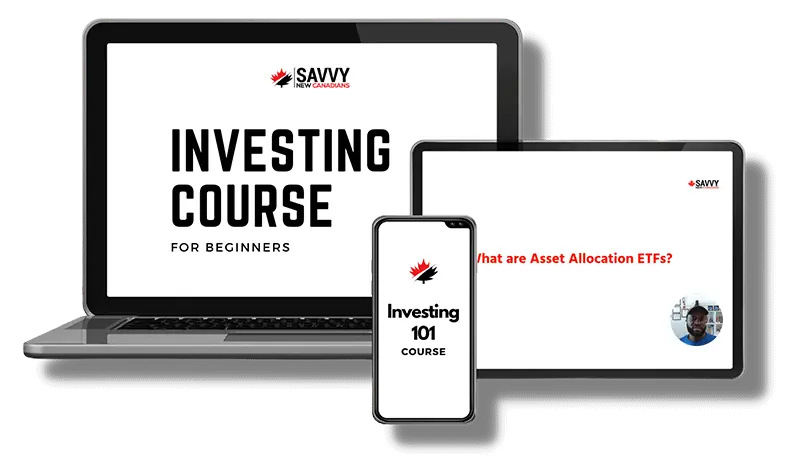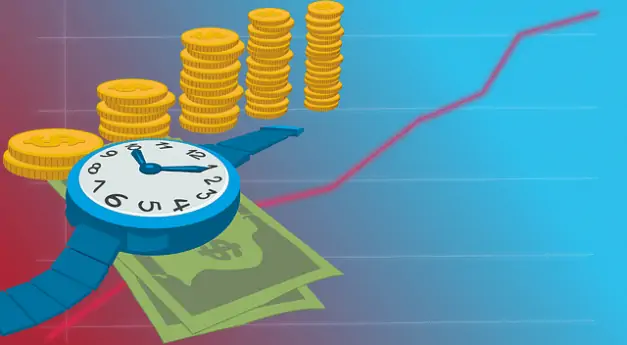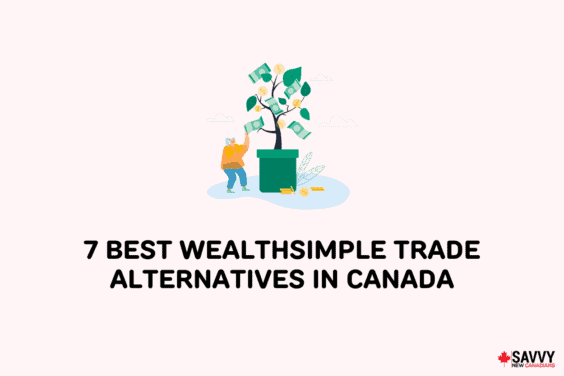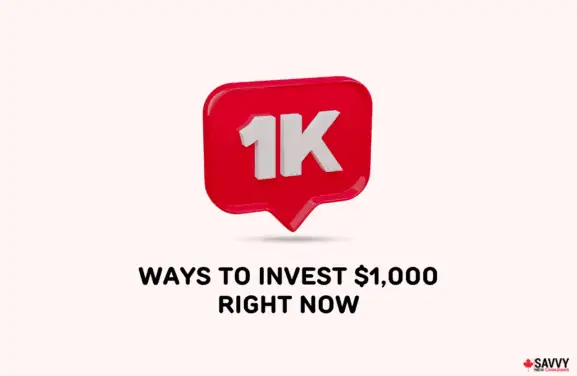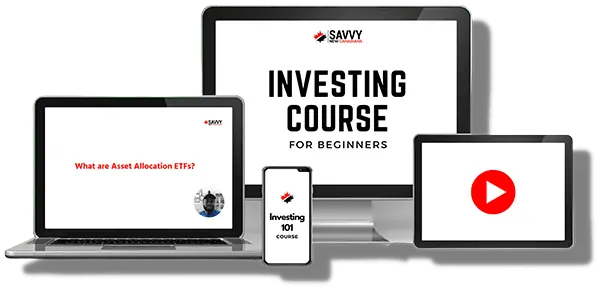The true secret to growing your wealth over time is to invest in income-producing assets. In other words, let your money make more money and do the hard work for you.
For Canadian investors, there is a long list of income-producing assets that you can consider. All of the assets on our list can help generate cash flow and provide steady income without you lifting a finger.
This article will review the 15 best income-producing assets in 2024 and explain why they belong in your portfolio.
Best Income Producing Assets in Canada
1. Rental Properties
It’s fitting that a list of Canadian income-producing assets begins with real estate. Despite rising interest rates, real estate remains one of the best assets to build wealth over the long term. Owning a rental property requires a significant amount of upfront capital to buy the property, as well as having the means to be approved for a mortgage.
There are some risks involved including difficult tenants, rising interest rates that can negate any profits made from collecting rent, and high property tax or strata fees.
One trend that has emerged is real estate crowdfunding. This allows investors to buy equity in real estate properties without needing to own or manage the property themselves. Real estate crowdfunding takes some of the risk out of owning rental properties but also provides lower overall returns.
2. Dividend Stocks
Dividend-stock investing might be a polarizing subject but there is no doubting the cash flow it can provide to your portfolio. Investing in these stocks will yield a quarterly or even monthly distribution. These stocks are also relatively safe to invest in as they are usually stable, with a high cash flow that the company can pay back to its shareholders.
The largest risk with investing in dividend stocks is the opportunity cost of not investing in growth stocks. Dividend stock investing is certainly a strategy for those looking for stability and income as they approach retirement. You can buy dividend stocks or ETFs at any investment brokerage in Canada.
3. REITs
One sub-group of dividend stocks that is popular among income investors is Real Estate Investment Trusts or REITs. Like stocks and ETFs, REITs trade on the Toronto Stock Exchange in Canada.
These assets provide an opportunity to invest in real estate through your brokerage account without ever having to own a property.
In Canada, REITs allow you to invest in anything from residential apartments to industrial facilities to grocery stores.
The most alluring feature of REIT investing is its high-yield and often frequent distributions. Many REITs will pay monthly dividends to shareholders with an average yield of about 4.0% to 5.0%.
How can REITs pay out such high distributions? These companies pay out 90% of their taxable income to shareholders. Most of this income is from collecting rent on the properties they own. In exchange for paying out 90% of their income, they avoid paying corporate income taxes.
4. Exchange-traded funds (ETFs)
ETFs have become a staple in the Canadian investment scene. These funds trade on the major stock exchanges and offer investors diversification and the ability to own a large number of stocks or bonds in a single asset.
ETFs in Canada track specific industries, international indexes like the S&P 500, or even the total global stock market.
What’s the catch? ETFs come with fees called Management Expense Ratios or MERs. These are paid to the companies that offer these ETFs, like Blackrock or Vanguard. Over time, these fees can eat into your total gains.
The convenience and simplicity of ETFs often outweigh the costs of owning them. Like stocks, ETFs can see their price fluctuate, although they rarely see as much volatility as individual stocks.
ETFs also pay dividends, can be shorted, and even have options contracts attached to them. You can buy ETFs on any Canadian brokerage site.
5. Farmland
Most Canadian investors do not give much thought to investing in our most abundant resource: land. In this case, the investment is more specifically an investment in farmland. Canada is one of the world’s largest agricultural producers, and with a rapidly increasing global population, farmland is as important a resource as ever.
So, how can you invest in farmland in Canada? Some private equity firms allow you to invest directly in Canadian farmland. These include companies like AGInvest Farmland Funds and Area One Farms.
The downside to these funds is that they often have a high minimum investment amount. On a positive note, farmland has historically outperformed real estate and does not correlate with the performance of the stock market.
6. Start a Business
A classic way to have income-producing assets is to start your own business. In Canada, this can be anything from starting a blog to buying a vending machine to building a car wash or self-storage unit facility. What you are aiming to do is to start a business that will provide consistent cash flow for as long as you own it.
Anyone can start a business in Canada, but it takes time, dedication, and some upfront capital. With most businesses, you will need to cover startup costs like insurance, a business license, and any assets you need to run the business itself.
While these are short-term costs, the hope is that your business will return many times that initial investment in the future!
7. High-Interest Savings Accounts (HISA)
Perhaps the simplest way of earning income on your money is to deposit it into a high-interest savings account. HISAs, as they are also known, pay a higher interest rate than the standard chequing account. In Canada, most financial institutions offer HISAs to consumers with typical interest rates of about 1.0% to 4.0%.
The drawback of a HISA is that they either offer limited transactions or will charge you for transactions. As for the interest rates, they are usually variable, which means they will fluctuate per the Bank of Canada’s prime rate.
These accounts are very low-risk, but the rates can be lower than the rate of inflation in the economy.
Simplii High-Interest Savings Account

5.90%* rate for 5 months
Unlimited debits and bill payments
Unlimited Interac e-Transfers
$400 cash bonus offer with a free chequing account
8. E-Commerce
With sites like Amazon, Etsy, or Shopify, opening up your online retail store has never been easier. This is especially true if you learn how to sell digital products rather than physical goods.
Why is it a benefit to sell digital products? The earning potential is far greater. Digital products are high-margin goods, typically with low overhead costs and the ability to automate production.
Starting your e-commerce site will allow you to sell things like online educational courses, digital music, or art. Once you find a particular niche, an E-Commerce site can be a wonderful source of recurring revenues with minimal effort on a day-to-day basis.
9. Buying a GIC
A GIC, or Guaranteed Investment Certificate, is a type of fixed-income asset with low-risk and guaranteed returns. GICs are sold by Canadian financial institutions and act similarly to you providing them with a small loan.
When you buy a GIC, you are providing the institution with a sum of money. Once the term of your GIC has expired, you will be returned 100% of your original investment plus any interest you might have earned.
The interest rates for GICs are influenced by the Bank of Canada’s overnight policy rate. This is why in 2024, fixed-income assets like GICs have been gaining popularity as they are yielding higher-than-normal returns.
Over a longer period, GICs have traditionally underperformed stocks, although they come with no volatility and a guaranteed, albeit smaller return. You can hold a GIC in any Canadian registered or non-registered account.
EQ Bank GICs
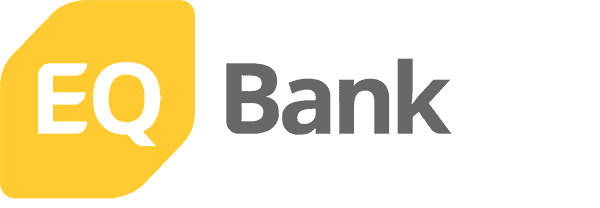
Earn up to 5.35% interest
3-month to 10-year terms
No monthly account fees
Start with as little as $100
10. P2P Lending
P2P or Peer-to-Peer lending sites create a marketplace where individuals can either borrow or lend money to other users.
The risks are significantly higher with a P2P lending site, but it often exists as a last resort for people unable to qualify for traditional credit sources. They can also expect to pay a much higher interest rate on your loan than with a financial institution.
There might also be platform fees and minimum eligibility requirements needed for users to qualify as either a borrower or lenders. Some Canadian P2P lending sites include Lending Loop and GoPeer.
11. Mutual Funds
Mutual funds are funds that are created and managed by financial institutions. These have historically been actively managed funds that are easy for Canadians to invest in.
Unlike ETFs, mutual funds do not trade on stock exchanges and typically come with much higher MERs. Mutual funds can hold stocks, bonds, fixed-income assets, and even other funds.
Investors can invest in mutual funds in any Canadian registered or non-registered account.
12. Buy an Annuity
Annuities are another type of fixed-income asset that Canadians can own in their portfolios. Like bonds and GICs, annuities require an upfront investment of money, followed by future guaranteed payments.
Annuities are slightly different in that they provide distributions either for a fixed period or for the rest of your life. The general rule of thumb is: that the longer you live, the more you make on your annuity over time.
When it comes to annuities, most people think of life annuities. These annuities guarantee monthly payments for the rest of your life, even after the original principal has been repaid to you.
In some cases, if you pass away before receiving all of your initial investment, the remaining payments would go to your estate or your beneficiary.
13. Monetize Your Car
These days, nearly every asset you have can be monetized into an income-producing asset. Even depreciating assets like cars can provide you with a steady income while you own them.
Monetizing your car has become a popular side hustle in this new digital age. You can use your car to be an Uber driver, a food deliverer, or even rent your car out through a site like Turo.
Whether you need some help paying your car off or are just looking to make a few extra bucks on the weekend, there are plenty of ways to turn your car into an income-producing asset in Canada.
Become a Delivery Driver With Uber Eats
Uber Eats is one of the best food delivery platforms available in thousands of cities worldwide.
You can sign up to become a delivery driver with Uber Eats if you have a valid driver’s license, a 2- or 4-door car less than 20 years old, proof of vehicle insurance, and are at least 21 years old. You will also need to pass a background check.
You can deliver as many or as few hours as you want on your schedule and cash out earnings easily. You also keep 100% of the tips you get. This side gig is a great way to bring in extra income.

14. Write a Book or Create a Course
Remember when we talked about selling digital products on an E-Commerce site? A couple of ways to do that include writing an eBook or creating an online course.
These two products are great because all of the work is completed in the beginning. Once you’ve invested your time and effort into creating the product, you can sell it online for years to come.
One potential downside to this strategy is it could take a significant amount of work to produce. You also need to be knowledgeable on the subject for your book or course to be taken seriously.
15. Bonds
Bonds are yet another fixed-income asset that is generally thought to be an important part of any diversified investment portfolio.
When you buy bonds, you are agreeing to lend your money to the bond issuer in exchange for regular interest payments until the end of the term when you are paid back your initial investment principal.
You can purchase bonds in any Canadian registered or non-registered account.
These assets generally have an inverse relationship with stocks. Usually, when stocks are higher bonds are less popular, and when stocks fall, bond demand rises.
There are numerous types of bonds you can buy, including treasury bonds, government bonds, corporate bonds, and municipal bonds. If you can’t decide on which bonds to buy, you can invest in a bond ETF, which perpetually pays you a monthly distribution.
What Are Income Producing Assets?
As you have probably gathered, income-producing assets are types of investments that generate a consistent cash flow to your portfolio. You know what they say: Cash is King. Diversifying your income streams will help to grow your overall wealth, which will start compounding over time.
Income-producing assets can be as simple as a high-interest savings account or as complicated as starting your own business.
What all of these assets have in common is they provide you with a flow of income that can grow consistently over time. Eventually, this can happen automatically or while you sleep.
Warren Buffett once said, “If you do not find ways to make money while you sleep, you will work until you die.”
How to Invest in Income-Producing Assets
This depends on which type of income-producing assets you wish to invest in. For financial instruments like stocks, ETFs, mutual funds, bonds, GICs, and other assets, you can do so at any Canadian brokerage.
For the best way to secure your long-term growth, consider using a Canadian discount brokerage like Questrade or Wealthsimple to avoid paying high commission fees.
For non-financial assets, there are sites devoted to these in Canada and around the world. Once you know the type of income-producing asset you want to invest in, a little research can help you find the right platform to use to start investing in cash-generating assets.
Questrade
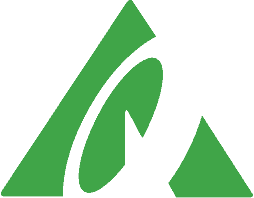
Trade stocks, ETFs, options, FX, bonds, CFDs, mutual funds, etc.
Get $50 trade credit with $1,000 funding
Low and competitive trading fees
No quarterly inactivity fees
Access to advanced tools and trading data
Top platform for advanced traders
Transfer fees waived
What is the Best Income Producing Asset?
The best investment assets will always depend on your personal risk tolerance and investment strategy.
For some, simply putting your money in a HISA is all the risk they want to take on. For others, a high-risk high-reward strategy for starting your own business is worth the effort and potential results.
If you want to take a medium-risk approach, then some of the best income-producing assets are dividend-paying stocks. Not only do you earn a regular dividend from the company each quarter, but you also have the potential for capital appreciation through the rising stock price.
If you want to play it even safer, then building a portfolio of ETFs can help avoid market volatility while also providing capital appreciation and dividends.
FAQs
Over a long enough time horizon, a lot of assets can make you a millionaire. In Canada, stocks and real estate have historically been the most popular income-producing assets. Starting your own business could potentially be the fastest way to become a millionaire, but it is also one of the riskiest.
Wealthy people learn quickly how to make their money work for them. Real estate has always been a fast track to wealth in Canada, but owning a diversified portfolio of stocks and other income-producing assets is also a way wealthy people grow their money.
If you have $10K to spend on income-producing assets you can put it into the stock market to buy ETFs or dividend-paying stocks. Depending on the business, $10K could also help you cover the startup costs, especially if it’s an online business that sells digital products.
Related:
